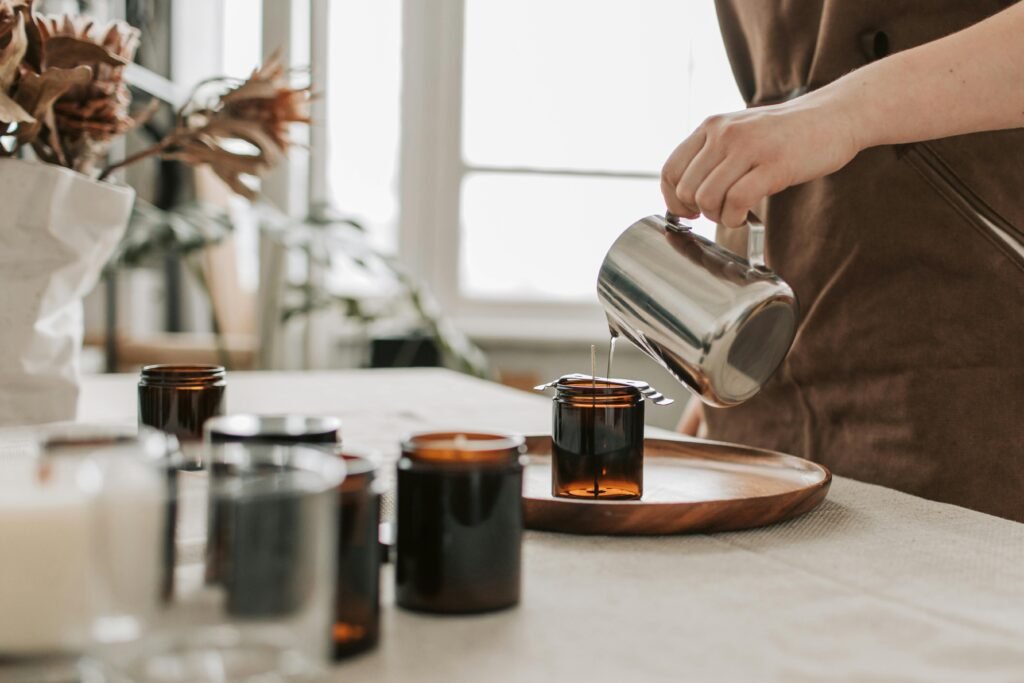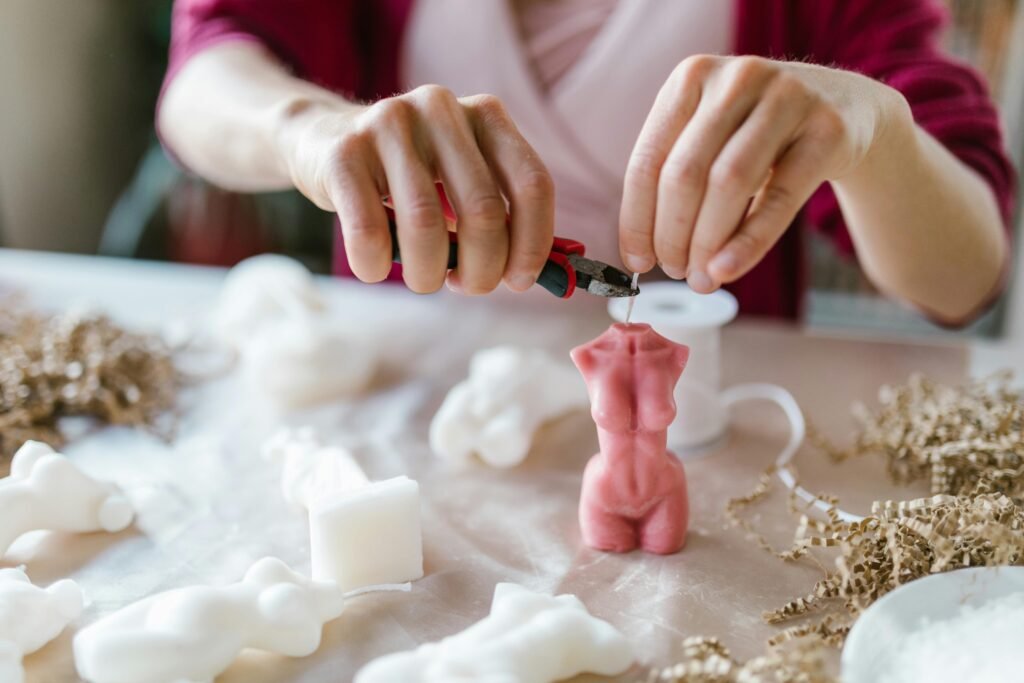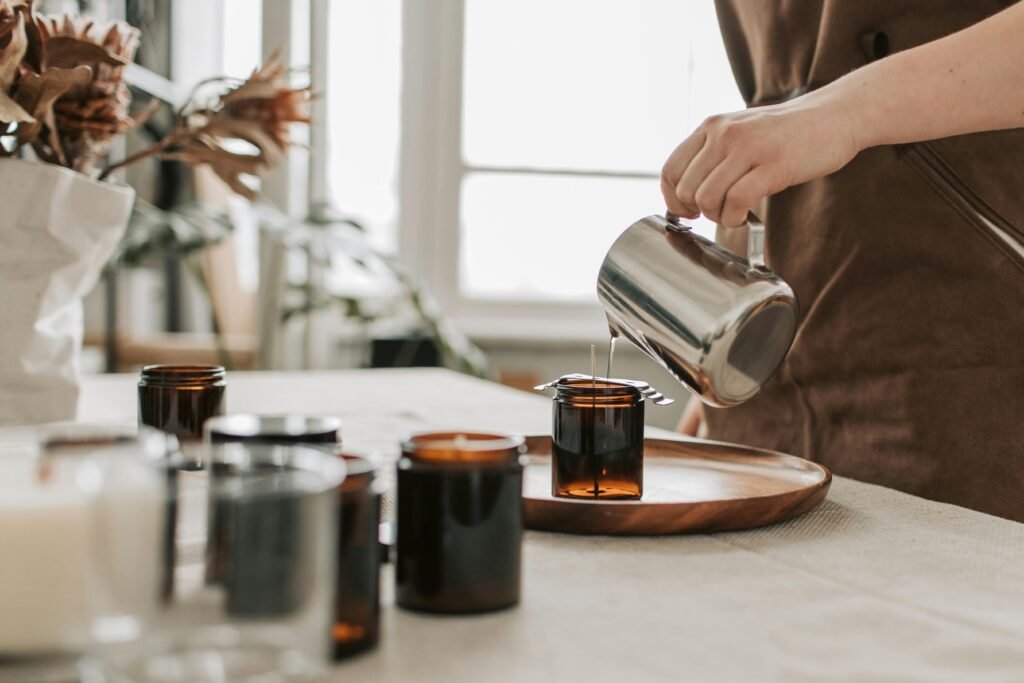Essential Supplies:
- Wax:
- Soy wax, paraffin wax, beeswax, or coconut wax are common choices. Each has its own properties.
- Wicks:
- Choose the right wick size for your container and wax type to ensure a proper burn.
- Containers:
- Glass jars, tins, or any heat-safe container will work.
- Fragrance Oils or Essential Oils (optional):
- Use oils specifically designed for candle making.
- Dye (optional):
- Candle dye blocks or liquid dyes can add color.
- Double Boiler or Melting Pot:
- For safely melting the wax.
- Thermometer:
- To monitor the wax temperature.
- Stirring Utensil:
- A heat-resistant spoon or stick.
- Wick Stickers or Hot Glue:
- To secure the wicks.
- Wick Holders or Popsicle Sticks:
- to hold the wick in place while the wax sets.
Basic Steps:
- Prepare Your Workspace:
- Cover your work surface to protect it from spills.
- Prepare the Containers:
- Clean and dry your containers.
- Attach the wicks to the bottom of the containers using wick stickers or a small amount of hot glue.
- Melt the Wax:
- Use a double boiler or a melting pot to melt the wax.
- Monitor the temperature with a thermometer. Different waxes have different melting points.
- Add Fragrance and Dye (optional):
- Once the wax is melted, remove it from the heat.
- Add fragrance oils or essential oils and dye, stirring thoroughly.
- follow the fragrance oil manufacturers recommendations for the correct ratios of oil to wax.
- Pour the Wax:
- Carefully pour the melted wax into the prepared containers.
- Leave some space at the top.
- Secure the Wicks:
- Use wick holders or popsicle sticks to keep the wicks centered while the wax cools.
- Let the Candles Cool:
- Allow the candles to cool and harden completely. This may take several hours.
- Trim the Wicks:
- Once the candles are fully cooled, trim the wicks to about 1/4 inch.
- Cure the Candles:
- Many candle makers suggest letting the candles cure for a few days before burning them, this allows the fragrance to fully bind to the wax.
Important Safety Tips:
Always be very careful when handling hot wax.
Never leave melting wax unattended.
Use a thermometer to monitor the wax temperature. Overheating wax can be dangerous.
Work in a well-ventilated area.
Keep water away from hot wax.



